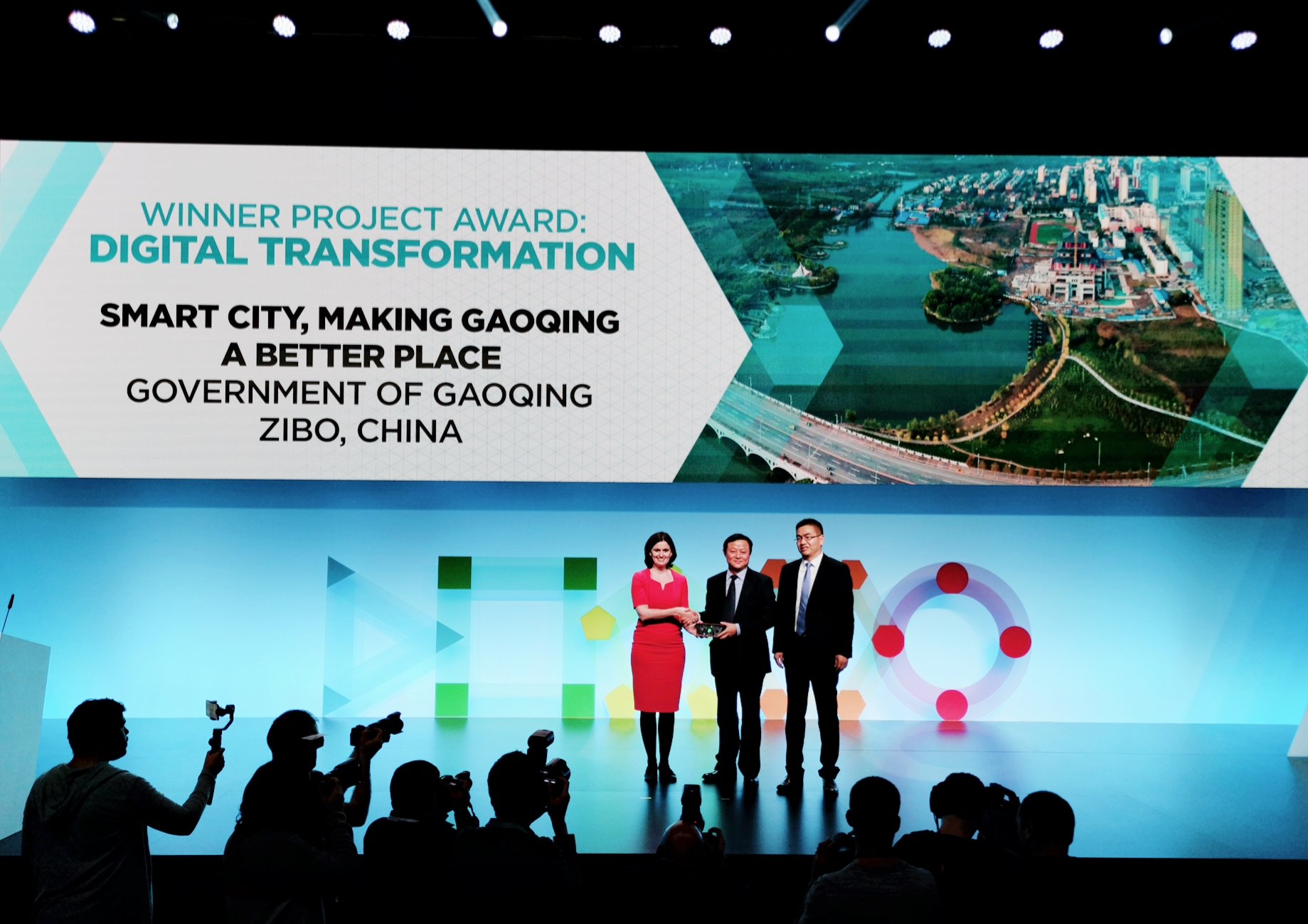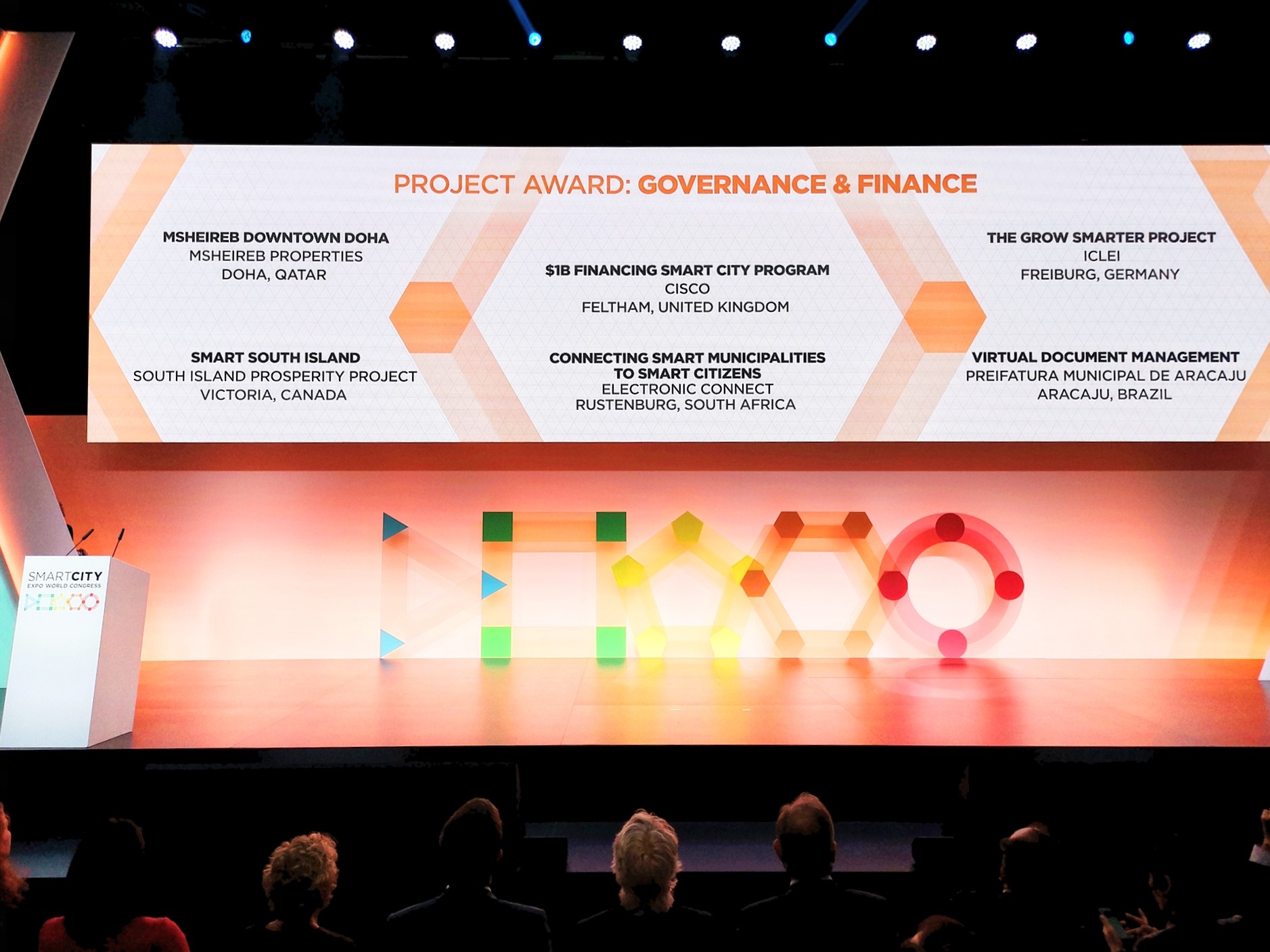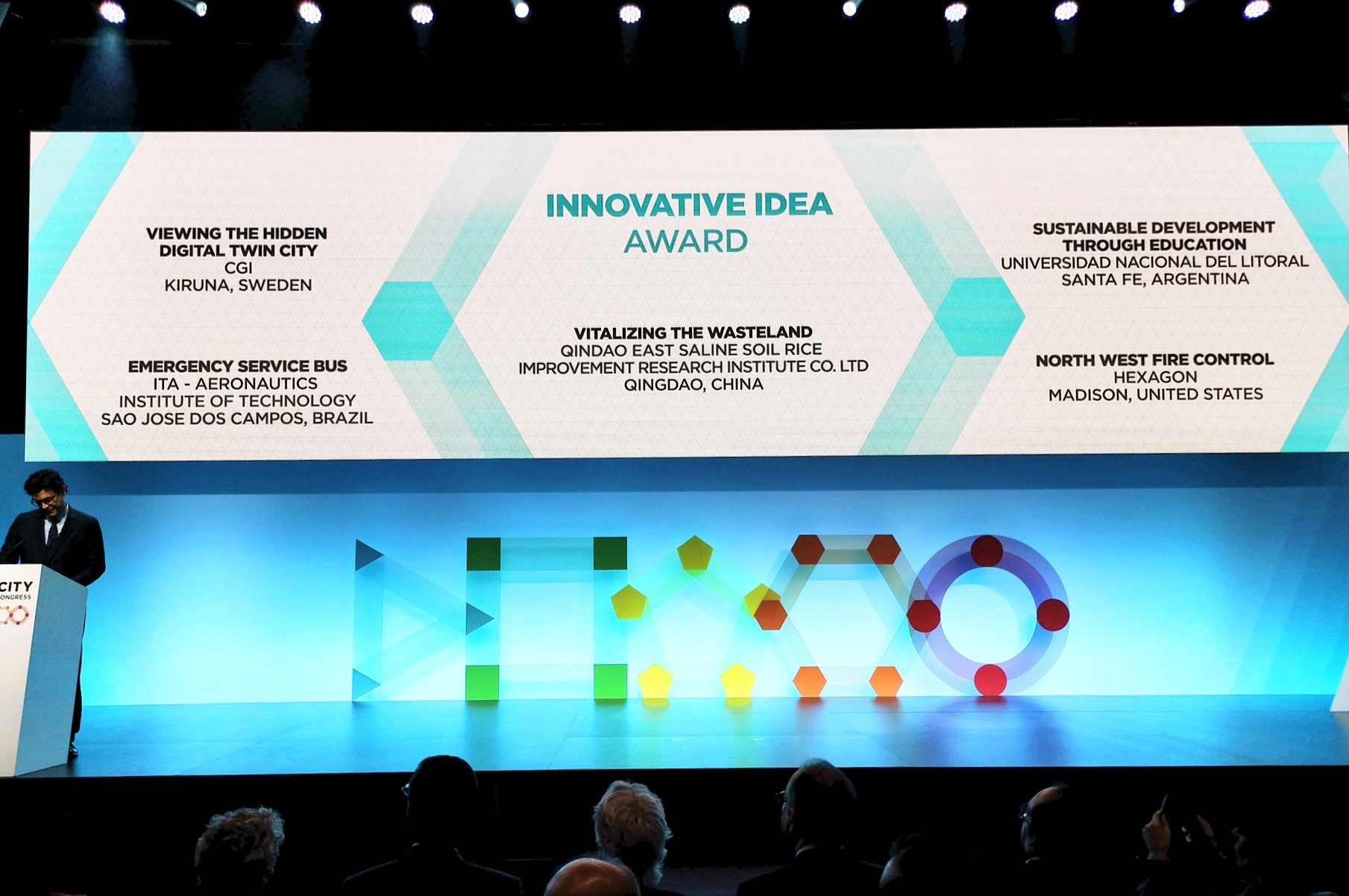Produkty, Rozwiązania i usługi dla przedsiębiorstw
[Barcelona, Spain, November 14, 2018] Huawei and three of its Smart City customers have won or been nominated for esteemed awards at the Smart City Expo World Congress (SCEWC) 2018, in recognition of their joint innovation and outstanding achievements in improving people’s livelihoods, enhancing management efficiency and promoting economic development. The city of Gaoqing in China won the Digital Transformation Award for its Smart City project. Rustenburg in South Africa won the finalist Award for the Governance & Finance Project, while Qingdao in China won the finalist Award for the Innovation Idea Project for its agricultural rice improvement project. These prestigious awards reflect the industry’s recognition of Huawei’s leading technologies, innovative solutions and implementation outcomes in smart city development.
According to the World Bank, urban populations today account for 55% of the world’s total population, which is expected to grow to two thirds by the middle of this century. Cities in both developed and developing countries face a common challenge: how to use digital technologies to respond to citizens’ demands for better quality living environments in a more efficient and dynamic manner, and create more efficient commercial environments. The SCEWC’s mission is “to empower cities and collectivize urban innovation across the globe,” and the World Smart City Awards seek to recognize the most outstanding initiatives and projects.
Yu Dong, President of the Industry Marketing and Solution Department of Huawei Enterprise Business Group, said: "Huawei believes the primary driver of Smart City development is to offer more benefits and higher efficiency to citizens and businesses. Huawei regards a city as an organic being and strives to build the city nervous system that will enable the city to perceive, think, self-learn and grow. We have consolidated the core elements required for smart city development to build our Digital Platform, which can aggregate the diverse resources of the city and connect all facilities and city applications to make efficient use of the data available. Artificial intelligence (AI) capabilities have been added to Huawei’s Digital Platform following the announcement of our full-stack, all-scenario AI solution, and this will dramatically accelerate innovation for smart city development. We congratulate Gaoqing and Qingdao in China and Rustenburg in South Africa for their achievements in Smart City construction. Global smart city construction signals the advent of a platform-based era. Huawei will continue to build digital platforms to help more smart cities achieve true digitalization."
China’s Gaoqing Wins the Digital Transformation Award for Creating a Replicable Small and Medium Smart City Model
As the first comprehensive county-level smart city in China, Gaoqing serves as a smart city model for small and medium cities. Gaoqing leverages Huawei’s Digital Platform to achieve smarter city administration, industry development, and multiple benefits for citizens. Based on a comprehensive city information network supported by a full-coverage eLTE government-exclusive network, the solution integrates the city’s big data, geographic information system (GIS), video cloud, command and dispatching resources, and cloud computing resources. In addition, more than 30 smart applications have been implemented to improve areas such as city governance, enterprise transformation, safe manufacturing, and environment protection. This solution helps Gaoqing accelerate digital transformation and sustainable development as well as improve the standard of living for more than 400,000 citizens. The Smart City initiative allows Gaoqing to achieve modern city governance, improve government services to benefit its citizens, and drive a digital economy through the use of smart industry. To date, Gaoqing has worked with Huawei and more than 20 other partners to establish China’s Small and Medium Smart City Industry Alliance, promoting the application of its city governance solution to surrounding counties and other cities.

China’s Gaoqing Wins the Digital Transformation Award
Rustenburg in South Africa is in the finalist for the Governance & Finance Award for Building a Safer and Smarter Digital Ecosystem
During the last decade, the population of Rustenburg has increased by 400%, leading to challenges related to social security and economic development. Through the use of smart infrastructure, Rustenburg’s Smart City project provides real-time data and other key indicators, using technologies such as big data analytics and IoT to make accurate, data-driven decisions for sustainable city development. Key applications such as an integrated payment platform, smart street lighting, smart parking, and a smart transportation system have been implemented to improve the management of public utilities and the usage of municipal facilities. As a result, municipal power consumption decreased by 50% and use of public transportation has increased. Improved city connectivity and productivity has elevated the standard of living for more than 600,000 citizens. In terms of public safety, police now use advanced communications, monitoring, and video data analysis with identification systems to reduce response times, which has decreased the crime rate by more than 50% and made the city safer. In the digital transformation of Rustenburg, free Internet has been deployed in poverty-stricken areas and more than 1,500 jobs were created. In addition, the Smart City project in Rustenburg has led to the creation of multiple city applications and entrepreneurial applications, as well as the formation of a comprehensive entrepreneurship platform connecting citizens, the government and small and medium enterprises. The city remains committed to building a digital economy and an innovative ecosystem.

Rustenburg in South Africa is in the finalist for the Governance & Finance Award
Qingdao in China was in the finalist for the Innovation Idea Award for its Agricultural Rice Improvement Project that Revitalizes Uncultivated Land
Academician Yuan Longping led the Qingdao Saline-Alkali Tolerant Rice Research and Development Center to develop a type of saline-alkali rice. This kind of rice yields a maximum of 620 kg per mu (an area roughly equivalent to 666.66m2) in China and 500 kg per mu in the desert areas of Dubai. The achievement is dually attributed to the scientific invention and Huawei’s Element IoT system. In the IoT system, surface and underground sensors collect various kinds of data, such as light, humidity, salinity, and alkalinity data, which is sent to Huawei Cloud Big Data Center through eLTE networks. AI systems and experts then analyze this data and provide targeted pesticide spraying, fertilizer and insect control solutions to improve the performance and yields of saline-alkali rice. This has led to a 30% reduction in water consumption, a 40% reduction in fertilizer consumption, and a 20% increase in economic benefits. The transformation of 100 million mu of saline-alkali land can yield 30 billion kg of rice and feed 80 million people. This scientific and technological innovation is set to benefit people across the world. Moreover, the Qingdao Saline-Alkali Tolerant Rice Research and Development Center led by Huawei and Yuan has set up the Agricultural IoT Global Joint Innovation Center to develop a “Agricultural Fertile Soil Platform” for the global agriculture industry, aimed at accelerating the development of smart agriculture 4.0 supported by IoT, big data, mobile connectivity and cloud computing technologies.

Qingdao in China was in the finalist for the Innovation Idea Award
Huawei’s Smart City Solution has served more than 160 cities in over 40 countries. The Smart City Expo World Congress (SCEWC) 2018 is being held in Barcelona, Spain from November 13 to 15. Huawei’s booth is located at B200 of the Gran Via 2 exhibition hall (Hall 2).